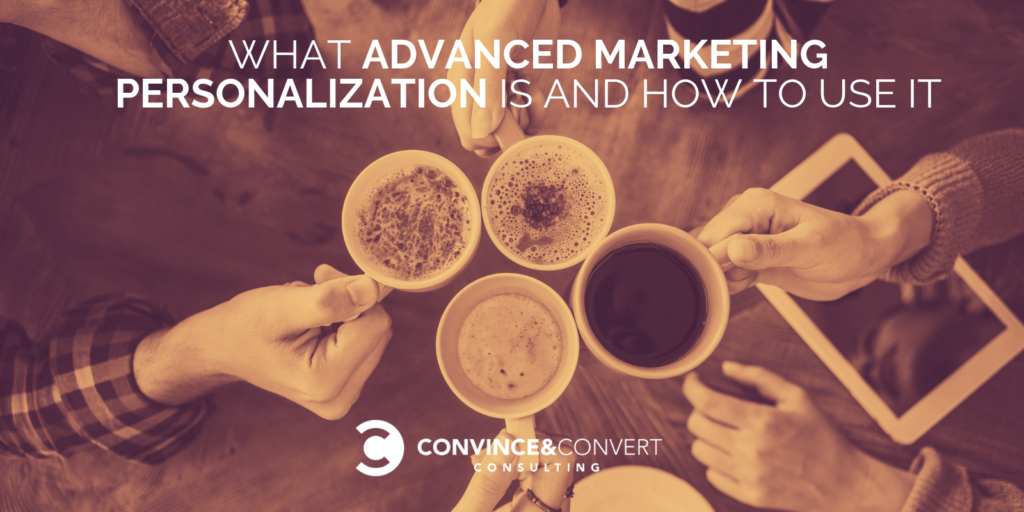
Marketers have used personalization as a powerful tool in their strategy to improve their marketing efforts for many years, but as marketing technology is moving forward, the personalized marketing is getting more advanced.
Studies show that personalized email campaigns achieve 41% percent higher click-through rates and 29% higher open rates than non-personalized emails. Furthermore, your customers now expect personalized experiences. In fact, this study found that 32% of your customers expect to be delivered a personalized experience from your brand.
Personalized email campaigns achieve 41% higher click-through rates and 29% higher open rates than non-personalized emails. Click To Tweet
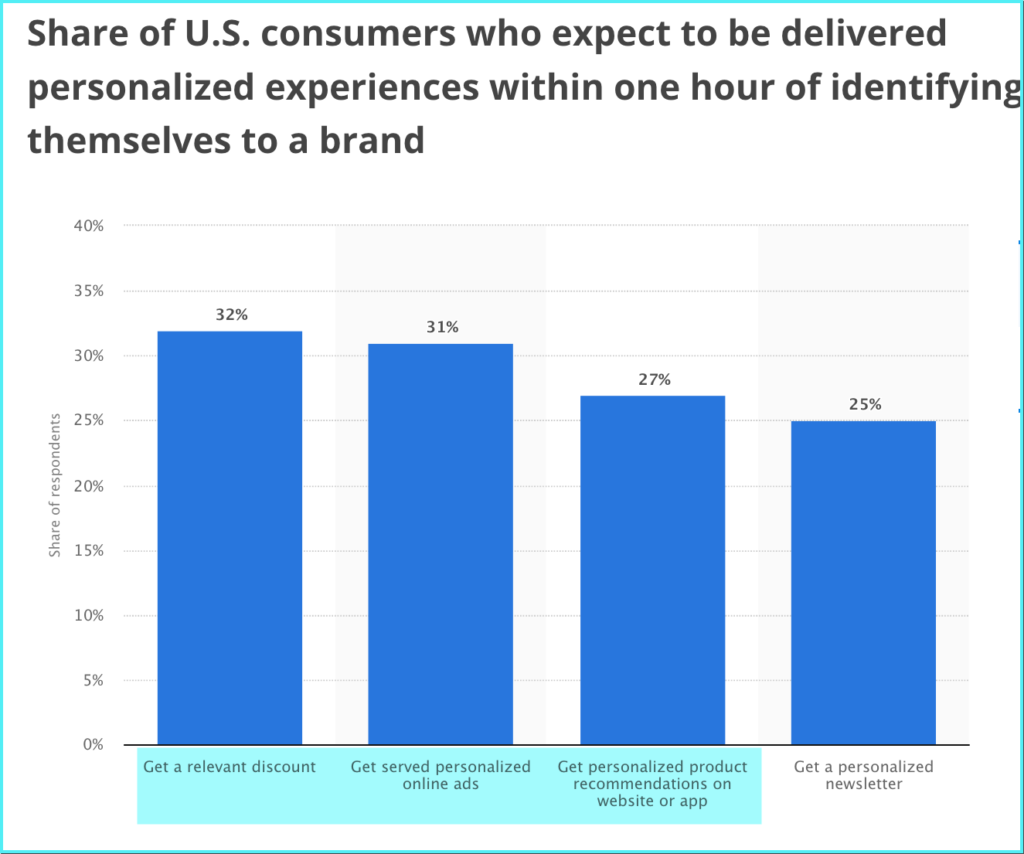
What is Personalized Marketing?
Personalized marketing is a whole lot more than simply using customers’ first names in emails.
In fact, it is a strategy that can be integrated into various types of marketing mediums, including blogs, social media, and emails to achieve better results.
Personalized marketing comprises gathering data relating to customers and then crafting marketing experiences and content that target specific customer types.
User Data
Any personalized marketing strategy starts with user data. The success of a campaign depends on the quality of data collected and measured. Different data can be collected to learn more about users, be it through surveys or email list segments. It is the only way in which you can offer more personalized experiences via marketing campaigns.
Luckily, there are a few great free tools that help you collect user data.
Google Analytics allows you to analyze your users’ age and gender.
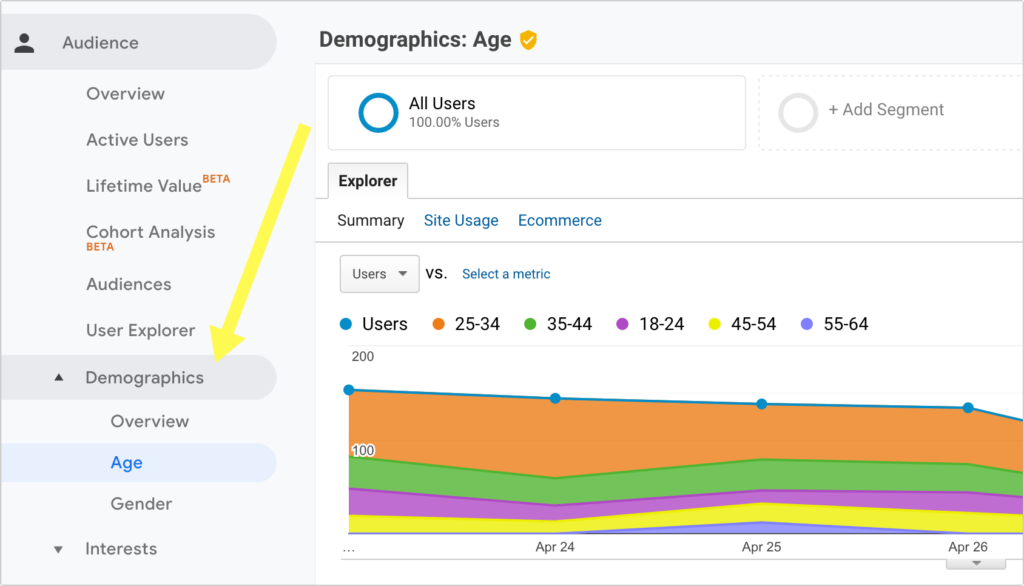
When it comes to analyzing your website users’ locations, nothing beats Finteza’s “Audience” research. Finteza breaks the report into most common cities, allowing you to personalize your user experience based on the city they are in.
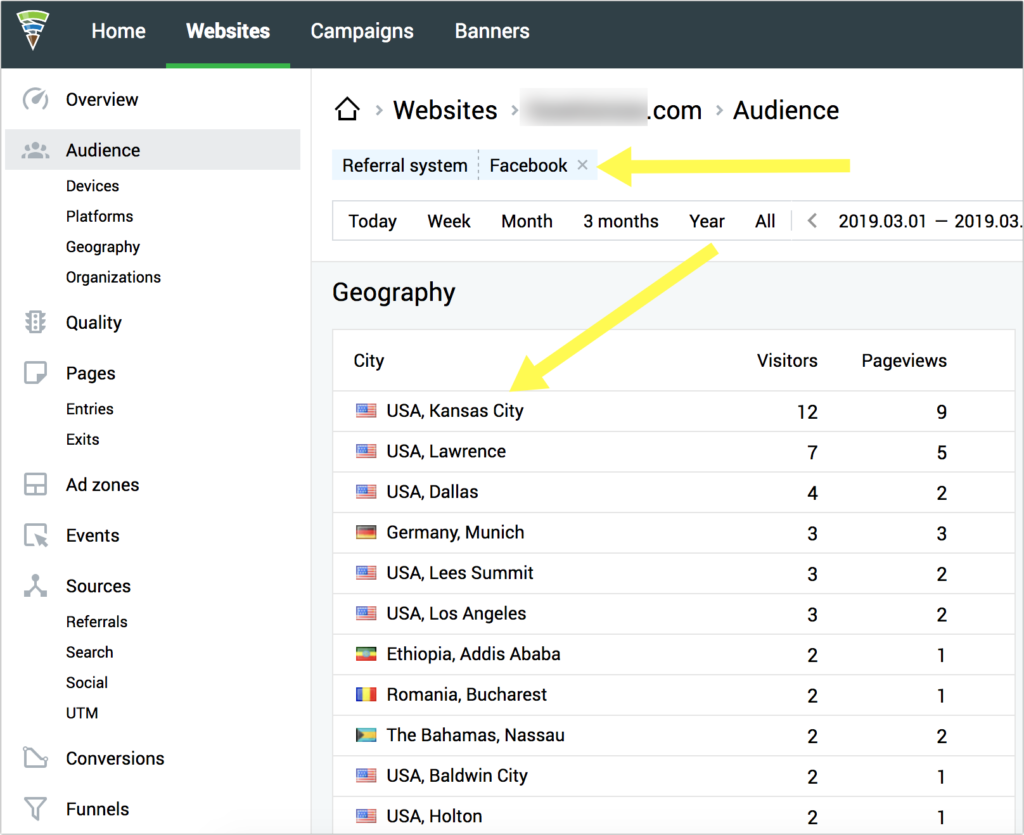
Finteza is a free web analytics software that offers some solid and unique audience segmentation features.
You can only start painting a picture of a typical customer once you have enough data and that will allow you to start personalizing your marketing campaigns properly.
The examples described below will help show you some of the power marketing personalization has.
Boost Conversions and Sales
Personalized marketing is not only about connecting with an audience. It will also help customers while growing sales at the same time. A simple product suggestion or recommendation could help bring better results.
Advanced content management systems offer some personalized marketing features. For example, Duda allows you to personalize calls to action based on time of day, geolocation, number of visits and more:

Personalized marketing is one of the best ways to improve the performance of your site CTAs, as well as boost social media engagement.
Make Recommendations
It is good to learn about the buying habits of customers. Big retail sites including eBay and Amazon use this data very effectively to offer their customers relevant product recommendations. They also occasionally use emails that contain catalogs of recommended products.
Amazon gives very good suggestions on what you may need to buy (often even before you yourself realize you need it). This eliminates the need to ask friends or searching the web.
More and more, brand and product discovery is influenced by Amazon’s AI algorithm that takes into account past shopping history as well as items in the Wishlists, items left in the shopping carts, and even customers’ reviews.
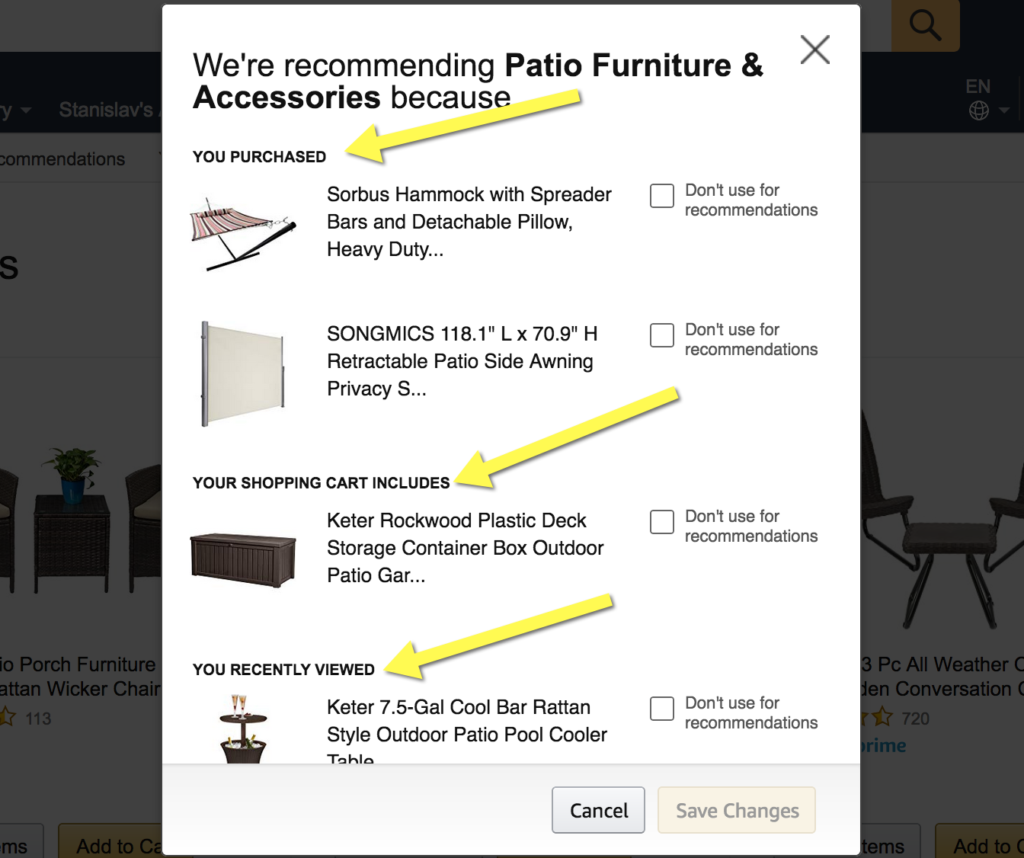 Big players’ adoption means that customers almost expect the same level of personalization whenever they interact with any brand online.
Big players’ adoption means that customers almost expect the same level of personalization whenever they interact with any brand online.
Create More Engaging Content
Personalization can help you differentiate yourself by creating unique and better content that leaves special memories for customers.
One of my favorite examples is Boosterthon that allows schools to host fun fund-raisers. For every participating student, there’s a personalized video created using the child’s picture and name. The result is pretty astounding audience engagement — both parents and students love their personalized videos!

Target Specific Audiences
A major benefit of personalized marketing is that you will be able to reach specific audiences. Gathering user data from studies, surveys and list segments will enable you to create effective email campaigns that target audiences based on their buying habits or interests.
If your audience, for example, likes movies, you can offer more personalized experiences by using pop-culture references in email opt-in forms, blog posts and email campaigns’ content to increase conversions.
One of the best ways to know your audience interests to be able to personalize your content better is to explore which keywords your target customers are typing in the search box to find you or your competitors. Keyword research is not just for SEO: It gives you lots of insight into your customers’ struggles allowing you to refine your marketing strategy.
Serpstat provides an in-depth analysis of queries you or your competitors show up in Google for. Just type in your domain and proceed to “Top Pages” report behind “SEO Research” tab.
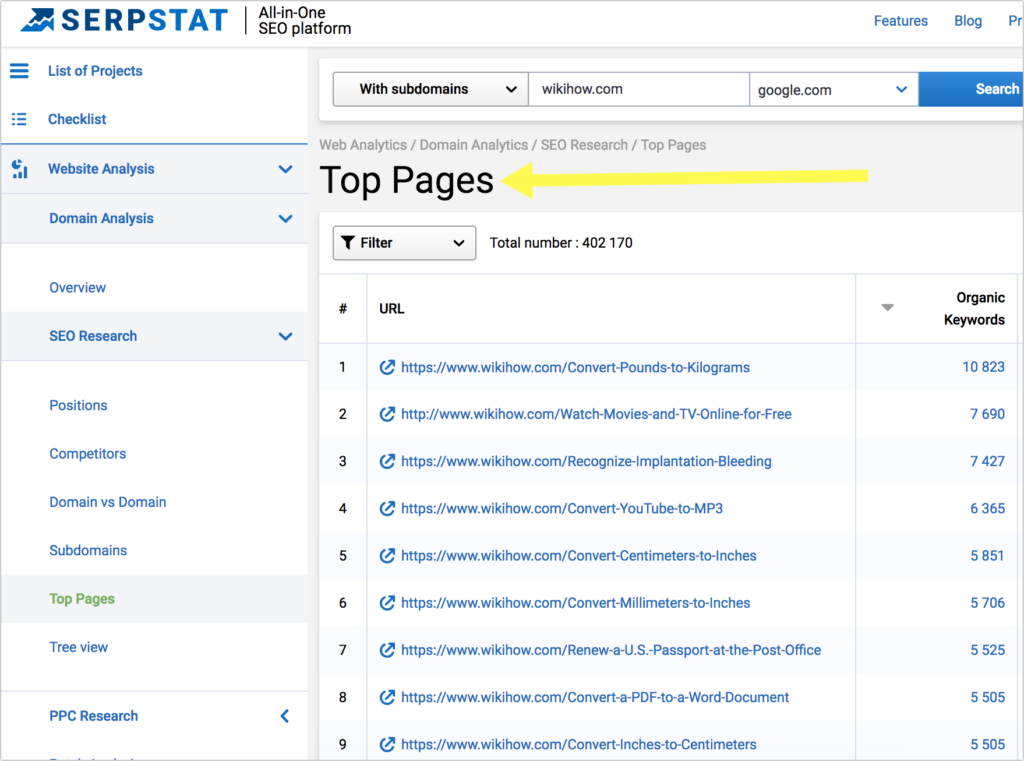
This section finds pages from any domain that rank well for the highest number of queries. Clicking any number in “Organic Keywords” column generates the list of queries the page is ranking for. This report allows you to identify your top landing pages and personalize them based on search queries that drive people to the site.
Another useful tool to identify if your pages are doing a good job giving your target customers what they need is TextOptimizer. Its on-page content analysis shows which audience type your content is optimized for and suggests how to better cater to your target audience.
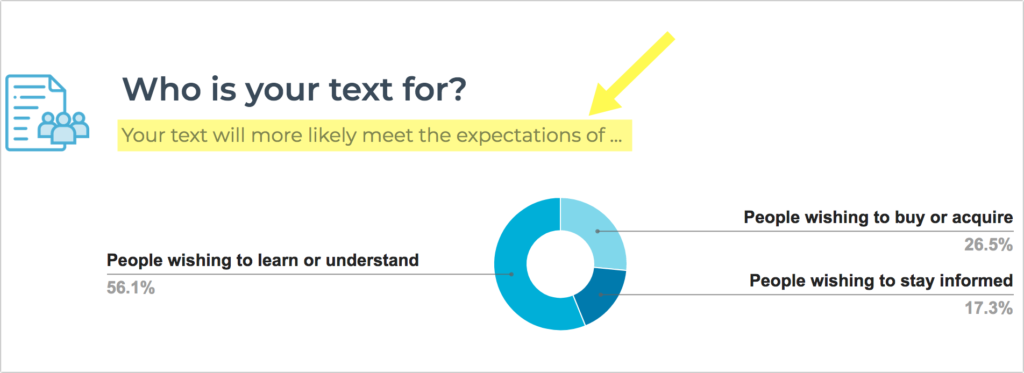
Build Meaningful Relationships
Customer loyalty should always be a long-term goal of any marketing campaign and personalized marketing is a great way to achieve that.
Personalized marketing helps build more personal and stronger relationships with customers. It is easy to show that you care about your customers by sending thank you emails on the anniversary of them joining your email list, or sending emails wishing them well for their birthdays.
Always use personalization when improving landing pages or your entire website. This will help your customers feel at home on your website, which will in turn generate more conversions and sales.
Summary
Personalization is ultimately about implementing tactics that will serve your customers best. Try to put yourself in your customers’ shoes once in a while and try to look at things from their perspective. This will really help you to improve your personalized marketing strategy.